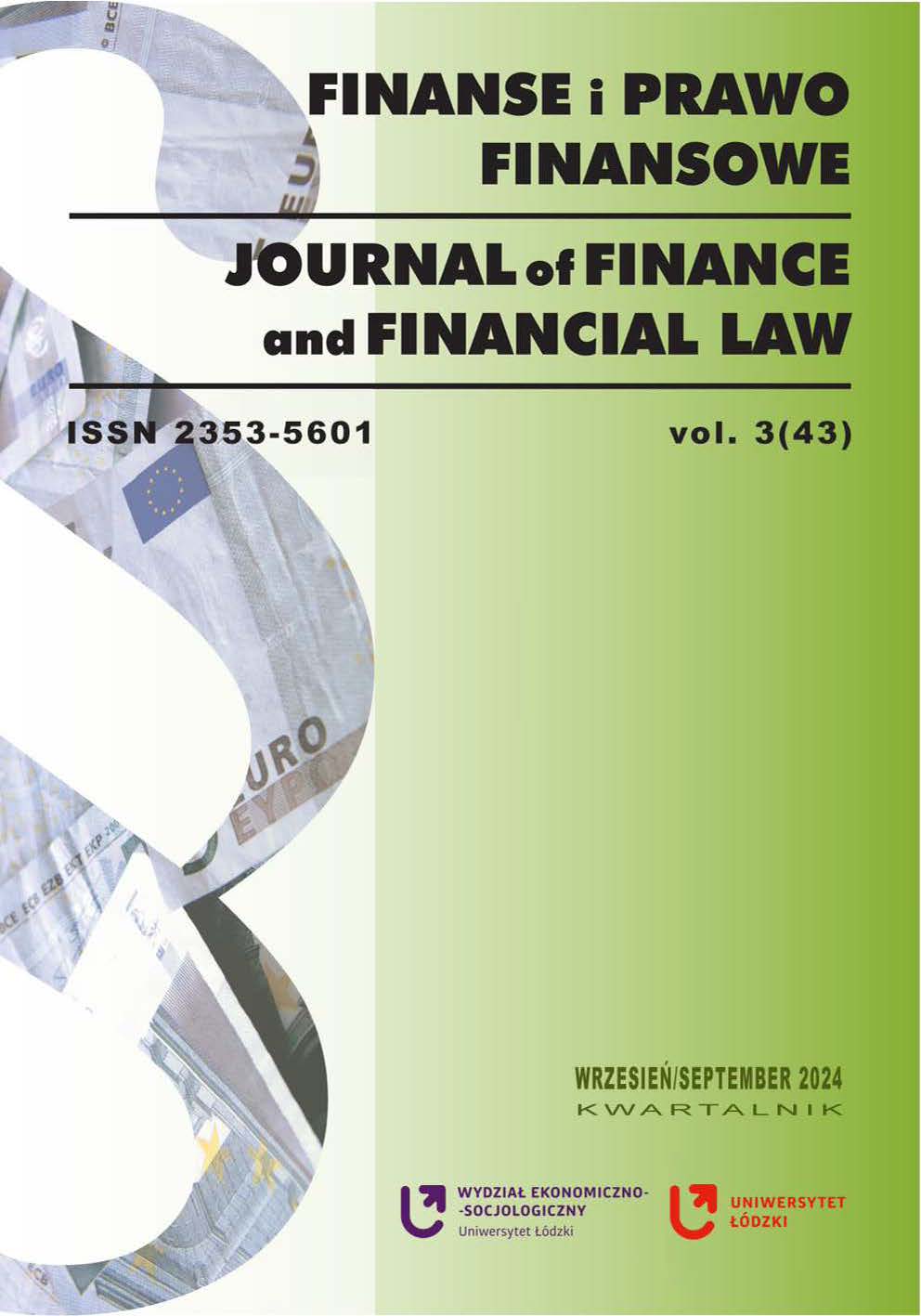The Significance of the KYC Procedure from the Perspective of Banking Institutions in Poland and the Perception of this Policy from the Clients' Perspective – Based on an Empirical Study
The Significance of the KYC Procedure from the Perspective of Banking Institutions in Poland and the Perception of this Policy from the Clients' Perspective – Based on an Empirical Study
Author(s): Justyna RybackaSubject(s): Economy, Public Finances
Published by: Wydawnictwo Uniwersytetu Łódzkiego
Keywords: bank; KYC; AML; banking sector
Summary/Abstract: The purpose of the article. Globalization in the world of finance leads to international flow of financial resources, but it is also a source of economic crimes and abuses. This has become the reason and necessity for establishing regulations on money laundering, terrorism financing, and tax evasion. To implement these procedures, financial institutions have adopted the Know Your Customer (KYC) policy. This policy is based on understanding the client, their structure, business principles, sources of funds, and assets. Banks are required to understand their clients in a way that ensures they are not involved in transactions considered prohibited and inconsistent with current policies.On one hand, banks are obligated to report this information; failure to comply may result in financial penalties or exclusion from international cooperation. On the other hand, banks must obtain the required data from the client. Clients are not always aware of the regulations in force. Additionally, the necessity of reporting required data is often perceived as burdensome from their perspective and affects their use of banking products. Therefore, it is crucial to consider how clients should be informed about reporting rules and how this process can be made less burdensome from the consumer's perspective while remaining effective in obtaining comprehensive information for the bank.Methodology. To find answers to the research questions, a quantitative study using a questionnaire survey was employed, which in the second stage was expanded to include a qualitative study – an Individual In-depth Interview (IDI).The primary aim of the conducted research was to investigate whether KYC procedures are understandable to entrepreneurs as bank clients. The study aimed to determine whether the regulations within the KYC policy are perceived as a barrier to cooperation with banks and the use of banking services by business owners or managers. The focus was on banks operating in Poland. To verify the primary aim, specific objectives were also defined: elements of the KYC policy that particularly hinder the conduct of transactions; elements of the guidelines within the analyzed policy that serve as a barrier to using banking services; factors that hinder establishing a relationship with the bank; clients' expectations towards banking sector entities regarding the application of the KYC policy.At the stage of formulating recommendations and suggestions, a generalizing-synthesizing method (deduction, reduction, induction) was applied. The inductive method helped analyze the significance of the KYC procedure from the perspective of banking institutions, starting from specific to general phenomena. On the other hand, using the deductive method, an attempt was made to analyze the problem starting from the effects of implementing the KYC policy on conducting settlements and using banking services by business entities that are bank clients. Based on the obtained research results and a critical analysis of the literature, it was possible to apply reduction, thereby verifying the previously formulated hypotheses.Results of the research. The study confirmed that bank clients do not always understand the verification process related to anti-money laundering and counter-terrorism financing measures. It also highlighted that the requirement for detailed reporting complicates financial settlements for organizations and their use of banking products. By verifying correlations between variables, the study demonstrated a significant relationship between organizational complexity and more frequent verification by banks. It was also proven that entities operating in the market for over ten years more frequently encounter difficulties in reporting information to banking institutions compared to those operating for shorter periods.
Journal: Finanse i Prawo Finansowe
- Issue Year: 3/2024
- Issue No: 43
- Page Range: 117-137
- Page Count: 21
- Language: English

